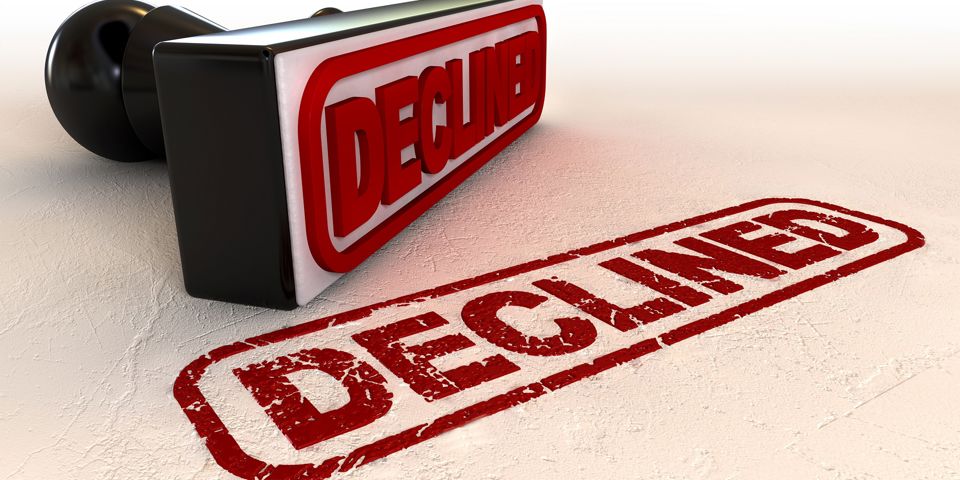Valid life insurance claims can be paid quickly, ensuring your loved ones benefit from your policy and have financial security after you pass. But, there are some cases where claims can be declined or reduced. Don’t let this happen to your family! We’ve identified 5 common reasons why life insurance claims can be declined or reduced. If any of them apply to you, take action today so that your family can make a valid claim when the time comes!
1. You withhold information from your insurance provider
The most common reason for a policy not paying out is because there is non-disclosure of material information when you apply for cover.
Here are two examples of what could be considered non-disclosure, or fraud:
- You develop cancer before taking out a policy and don’t tell the insurer you have cancer.
- You say on your application form you don’t have a heart condition when in fact you have a strong suspicion that you do, even if you have not yet had medical confirmation.
In these instances, the life claim can be declined, or the pay-out reduced (see below).
Don’t let this happen to you:
Be completely honest about the state of your health and your lifestyle when you apply for your policy or an increase in the sum assured. If you have not been honest, contact your financial adviser or a skilled 1Life consultant who can help you fully disclose your health information. An important reason on why you should take out a life insurance policy when you are younger.
2. Your premiums are not up to date
A policy is a legal contract where you pay a monthly premium in exchange for insurance cover. If premiums are unpaid, and not paid within a 31-day grace period, your contract no longer exists, because you have not kept your side of the deal.
Don’t let this happen to you:
Ensure your debit order details are up to date, that you complete a and that there are sufficient funds in your bank account for the debit order. If you miss a payment, make it up in the 31-day grace period. If you are struggling with affordability, contact your financial adviser or one of our skilled 1Life consultants who may be able to assist with ways to make your premium more affordable.
3. You did not inform your insurance provider of certain life changes
Many people think once they’ve bought life insurance they won’t have to think about it again. However, you may need to update your insurer if you have a major life change or if your health changes. At 1Life Insurance, you need to inform us if you have taken up smoking, changed jobs, changed your country of residence or taken up a dangerous hobby such as skydiving. You should also inform 1Life Insurance if you are going to be out of the country for longer than 14 consecutive days. When you apply for a policy, you should check with your insurer what information they need to be informed of and when.
Don’t let this happen to you:
Keep your insurer informed of lifestyle changes as required by the policy terms and conditions listed in your policy documents.
4. Suicide is not covered by the policy for the first 2 years
Most life insurance policies will not pay out if the policyholder dies due to suicide within the first 2 years of the policy, or within two years of a policy being reinstated.
5. The policy only covers accidental death
Life cover policies can cover death due to natural causes such as cancer, pneumonia, old age and heart disease, and/or death due to accidental causes such as a car accident. If you are only covered for accidental causes of death, a claim made for a natural cause of death will be declined.
Don’t let this happen to you:
Read your policy carefully and make sure you know exactly what it covers and if there are any waiting periods. Share this information with key family members.
1Life Insurance policyholders can access their policy details on the online policyholder service portal or the WhatsApp service centre.
What happens if you fail to disclose information?
The new information uncovered at the time of a claim is reviewed by the insurer’s underwriting department. The underwriters will assess the information to determine whether or not it would have made a difference to the cover, premium and other terms and conditions of the policy when it was taken out, for example would it have increased the premium or not.
Depending on the outcome, claims may be paid, declined or reduced.
- If the non-disclosure is so serious that the insurer would not have offered you cover had there been full disclosure, your claim will most likely be declined.
- If the non-disclosure or non-payment of premiums has a small effect, claims may be reduced. For example, your insurer may have offered you cover at a higher premium if there was full disclosure, which means the claim will be reduced by a proportionate amount based on the premium you paid versus the premium you would have paid had there been full disclosure.
Make sure your family has financial security
Your life insurance policy pay-out can change your family’s life – if they can submit a valid claim! Check your policy today and make sure you have fully disclosed all the information your insurer asks for and that your premiums are paid.
Published on: 30 September 2016
Updated on: 4 December 2023



